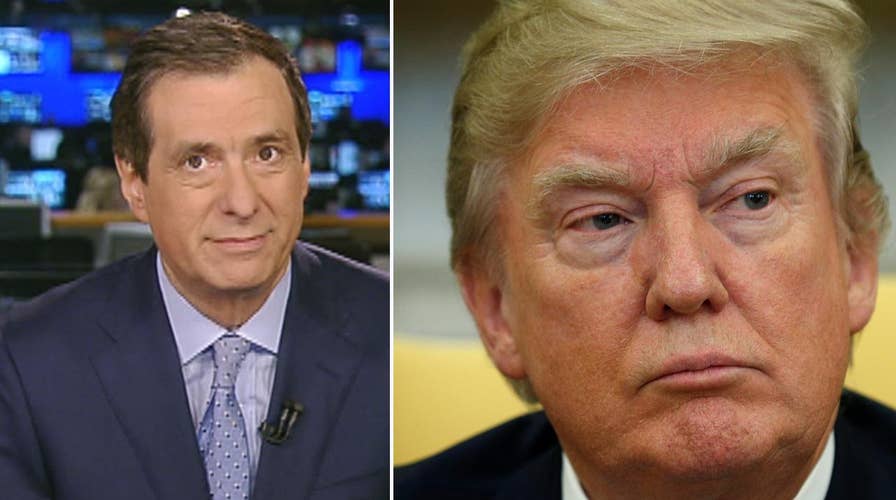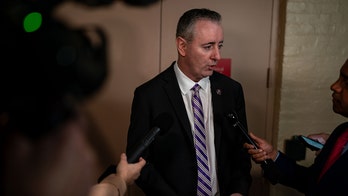Kurtz: Pressing Trump voters on regrets
'MediaBuzz' host Howard Kurtz weighs in on the media pressing Trump voters to find election regrets
One of the many failures of journalism in 2016 was the utter disconnect with the millions of frustrated Americans who helped put Donald Trump in office.
And the flood of mea culpas that followed, especially from pundits who reside in New York and Washington, made clear that they realized the extent of their cultural and ideological isolation.
So for all the negative coverage of the new president, there are at least occasionally expeditions to what might be called Trump Country.
Now these can take different forms. They can represent a legitimate effort to understand the thinking of those who voted for Trump and how they view him now. Or they can have a condescending quality, hoping to discover how deeply these voters regret what they have done.
But at least journalists are getting out of the Acela corridor and trying to take the pulse in conservative communities.
The New York Times ran such a story yesterday, headlined “In Ohio County That Backed Trump, Word of Housing Cuts Stirs Fear.”
The Washington Post ran a similar dispatch from Oklahoma yesterday, with the headline “Trump’s Budget Would Hit Rural Towns Especially Hard—But They’re Willing to Trust Him.”
Fear versus trust.
The Times piece opens in Kinsman, Ohio with Joseph Pavlic, who can no longer work because he has multiple sclerosis, and his wife Tammy. Their home is crumbling, but they were able to make some repairs through a federal program called HOME.
“The Pavlics’ ceiling may no longer be cracked, but in the zero-sum game that Mr. Trump’s budget seeks to set up, the nation is showing new fissures.” Trump’s budget would eliminate the HOME program.
Tammy hopes the president changes his mind, but Joseph likes his immigration policy: “Keeping the country safe compared to keeping my bathroom safe isn’t even a comparison.”
The Times also found Amber Barr, who survives with her young daughter on disability, food stamps and housing aid. She cried as she described her regret at voting for Trump: “If I didn’t have these programs, I wouldn’t have any kind of support, I wouldn’t have any kind of direction as to what to do, where to go, and I wouldn’t have any money to help me find resources.”
The Post story, in Durant, Okla., which voted 76 percent for Trump, quotes the city manager as saying it is easy to cut programs derided as “wasteful spending” without “really understanding the true impact.”
Betty Harris, a 77-year-old widow, is upset that Trump’s budget would dramatically cut funding for the senior center that is her lifeline. She gives presidents 10 strikes, and says “I have high hopes for Trump, but if he’s going to be cutting these kinds of programs, that’s going to be one.”
To be sure, it’s important for Beltway honchos to be reminded that cutting domestic programs affects the lives of real people, some of whom are struggling just to get by.
On the other hand, government is clearly living beyond its means, and no one ever said federal spending cutbacks wouldn’t be painful.
This was at the heart of the impasse over replacing ObamaCare: How much pain was the Republican Party willing to accept in exchange for a smaller, less intrusive program?
Americans are always conflicted about federal spending: They hate it in the abstract, love it when they benefit. And that seems to be true in Trump Country as well.





